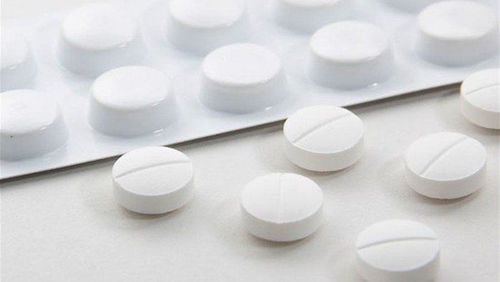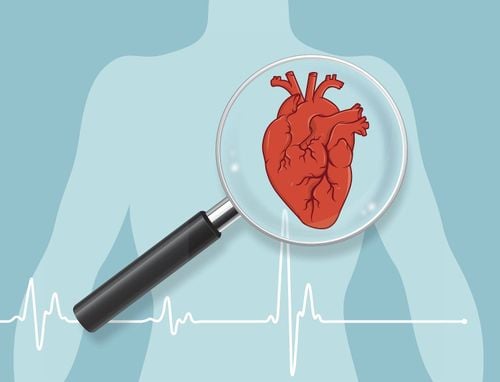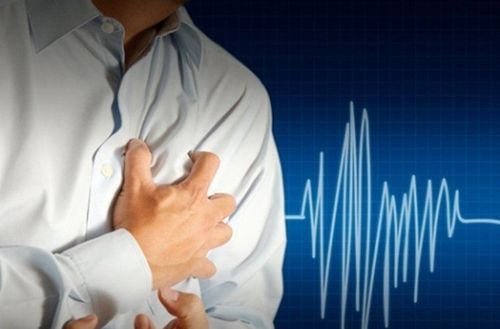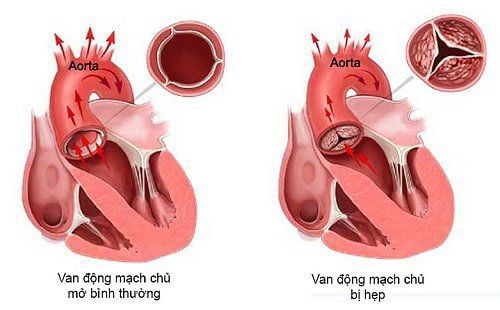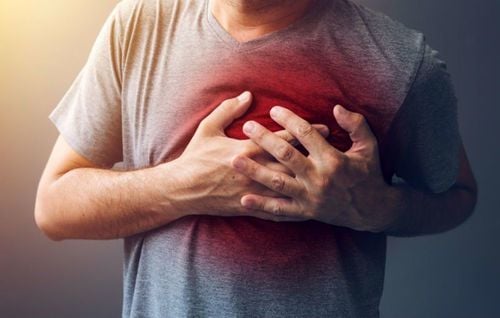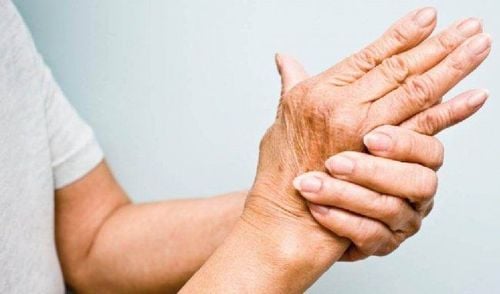This is an automatically translated article.
The article was professionally consulted by a Doctor of Cardiology - Thoracic Surgery, Vinmec Central Park International General Hospital.In order to restore cardiac function, optimize systemic perfusion, and detect acute complications early, patients after cardiac surgery need special care and follow basic principles to achieve treatment results. the best.
1. Why do patients after heart surgery need special care?
Caring for patients after heart surgery is very important to detect and treat complications early. Because after surgery, the success rate is only 80%, so that the patient can recover and return to normal activities, 20% involves post-operative care and exercise.After undergoing the surgical process, the patient follow-up time is from 24 hours to many days, based on the following factors:
The severity of the surgical intervention and the preoperative condition: Before surgery The patient's cardiovascular disease status is progressing strongly, heart failure is ongoing but ineffective treatment leads to weakness with pulmonary hypertension or some combined risk factors (diabetes, renal failure before surgery...); Risk of complications: Low cardiac output, infectious complications, pulmonary disease, kidney failure, neurological complications... Depends on age: Patients under 1 year old or over 80 age should be monitored regularly immediately after cardiac surgery until the second day. Therefore, after the operation, the patient will be closely monitored for vital signs, consciousness, cardiovascular status and the amount of fluid entering and leaving the body in the recovery room. After surgery to limit the patient's wound from infection, to help the wound heal quickly, it is necessary to limit visiting relatives.
After a short time of monitoring, when the patient's pulse and blood pressure become stable, the patient can breathe on his own and can eat and drink by mouth, he will be transferred to the postoperative care department. At this stage, the patient needs to take the initiative to walk gently to recover completely.
2. Notes in patient care after heart surgery

Tập vật lý trị liệu hô hấp, thở sâu giúp bệnh nhân cải thiện tình trạng nhanh hơn
Within 6 to 12 weeks after surgery, most patients are able to return to light office work. For heavier jobs or poor patient health, it is necessary to consult a doctor to choose another more suitable job.
After surgery, the patient should not carry or do vigorous activities, especially while the sternum is healing. Note: Do not push or pull anything heavier than 5kg within 3 months after surgery, do not push or pull heavy doors or windows that are difficult to open and close, do not hold your breath during any activity, especially when lifting heavy objects or walking. defecation.
Strictly follow all doctor's orders and use prescription medications All patients with mechanical heart valve replacement require lifelong anticoagulation. If the patient does not take the drug or does not take the full dose, it is easy to form a blood clot at the mechanical valve. Patients taking anticoagulants should have their blood tested periodically to test their INR (International Normalized Ratio) values. For patients with a mechanical aortic valve, the INR should be kept at 2 - 3, with a mechanical mitral valve at 2.5 - 3.5. If a blood clot blocks right at the mechanical valve causing the valve to not work, the patient can die suddenly.
On the contrary, if you take an overdose, it will cause bleeding in the body such as bleeding in the brain, stomach, muscles, kidneys, skin... In Vietnam, the anticoagulant used is sintrom, which belongs to the drug group. vitamin K resistance.
Diet also affects the drugs the patient is taking, especially anticoagulants. There are many foods containing vitamin K that interfere with the effect of anticoagulants, including: kale, green tea, asparagus, avocado, broccoli, cauliflower, mustard, legumes, parsley... These foods, patients should limit their intake to avoid affecting the medication being treated.
Light exercise such as walking, going up and down stairs For a faster recovery process, the patient should do light exercise such as walking, going up and down stairs... If the patient has a need to play other sports such as sitting on a plane to travel far, practicing yoga, gym... need to discuss with the doctor after surgery to have a suitable exercise and exercise plan at each time.
When walking, you should start walking short, moderate, then gradually increase in intensity. This will be a useful form of exercise because it increases the circulation of blood throughout the body and muscles. Patients should not exercise too much, when feeling tired, stop to rest, avoid exercising in hot or cold weather.
The patient can go up and down stairs, but exertion should be avoided. Should go slowly, rest when tired, should only go up and down a maximum of 2 flights of stairs. The patient can travel by car normally, but can only drive a bicycle or motorbike by himself 3 months after surgery. This is a safe time for the sternum to heal completely.
Sexual activity After 4 weeks after surgery, the patient can have sex but should avoid positions that put pressure on the chest, so choose comfortable and familiar positions. At the same time, keep the heart rate from increasing too much after this operation, especially for patients still being treated for heart failure after surgery.
Choose the right time to have sex after heart surgery, when you have enough rest, relax, do not feel tired or stressed. When feeling tired, stressed, chest pain, the patient should stop this activity.
To ensure the best health, patients should measure their heart rate to know if this activity is appropriate for their current health status. In addition, the target heart rate after exercise of the patient will change from time to time after discharge, the cardiologist will specify in each follow-up visit.
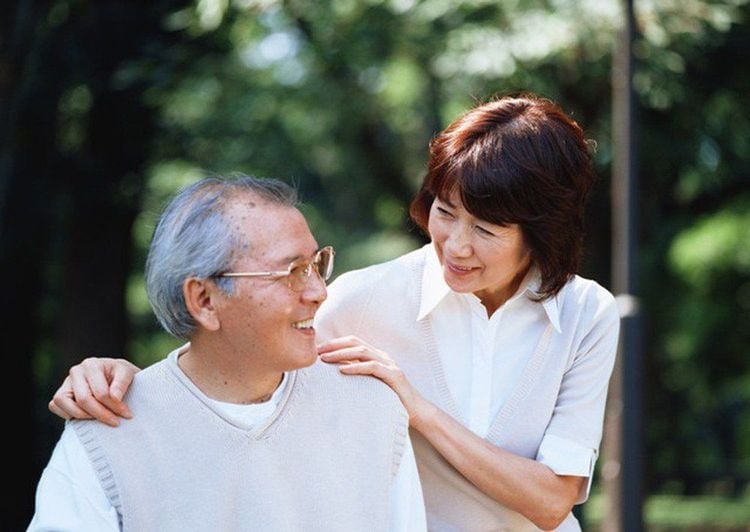
Sau 4 tuần kể từ sau cuộc phẫu thuật, người bệnh có thể sinh hoạt tình dục nhưng cần tránh các tư thế gây sức ép lên ngực
3. When does the patient need to be re-examined?
When the patient experiences the following symptoms, go to the hospital immediately for a follow-up examination, to avoid dangerous complications, unfortunately:Fever over 38.5 degrees Celsius; Angina , like the angina you may have had before surgery; edema around the ankle , or weight gain of 0.9 to 1.3 kg after 2 days; Drainage from the suture, red or pus-like discharge; There are abnormalities in the incision such as redness, swelling, pain, open or torn stitches, fast and irregular heartbeat and pulse; Unexplained bruises and bruises appear, especially in heart valve surgery patients who take anticoagulants; Headache, dizziness, lightheadedness, dizziness; Fainting, or severe headache; Blood in the urine or black stools; Bleeding gums (naturally or after brushing). When the patient has to go to the hospital (because of an accident, illness, etc.), the doctor must be informed that he is taking anticoagulants and is wearing an artificial heart valve. If a woman wants to have a baby, she must notify her doctor immediately for specific instructions, especially on the day of childbirth. In addition to regular and regular adherence to medication, diet also greatly affects the effectiveness of anticoagulants.
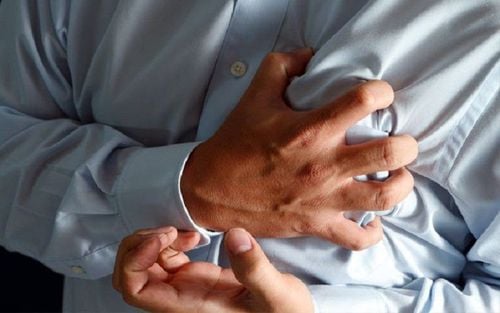
Đau thắt ngực, xuất hiện bất thường ở vết mổ thì người bệnh cần đến viện để tái khám ngay
4. Where should patients have heart surgery to get good postoperative care?
Thus, the care of patients after heart surgery is very important and it is necessary to effectively combine the care regimen of the doctor and the patient's compliance. At Vinmec Da Nang International General Hospital, patients after heart surgery can be completely assured with a strict and scientific care process, specifically as follows:Day, night after surgery and postoperative day J0 : Prophylactic antibiotics according to the protocol; Monitor bleeding hourly through the drain; Pain assessment/ 2h according to JCI procedure and FLACC scale (sedated patients on mechanical ventilation), VAS (patients awake); Bilan translates in - out/6h; Routine examination after surgery; Practice breathing, weaning off the ventilator and extubating when hemodynamically stable, clinically stable, patient awake, no fever, good urine; Reducing and discontinuing cardiac and vasopressor drugs depending on cardiovascular status; Very good pain relief according to the ESP protocol and for the patient to sit up, early mobilization at bed, respiratory physiotherapy; Give Heparin after 6 hours from the operating room, when there are no signs of surgical bleeding; Start giving beta blockers, aspirin to patients after coronary artery bypass surgery, take AVK anticoagulant as soon as they can (if indicated). Postoperative day J 1-2 Prophylactic antibiotics continue for 48 hours according to the regimen; Continue AVK anticoagulation, adjust dose according to INR; Oxygen-free arterial blood gas, self-breathing air; Monitor bleeding hourly through the drain; Pain assessment /2h VAS scale; Bilan import and export / 6h; Routine post-operative tests: Arterial blood gas, blood glucose, total blood cell analysis, complete coagulation function, Creatinine, Urea, chest X-ray, bedside echocardiography, CRP or Procalcitonin; Withdraw chest drainage if drainage is small (<100ml/24h or 0ml/h for 02 consecutive hours); Withdrawal of urine; Remove central venous catheters and arterial lines if hemodynamically stable disease; Keep ESP catheter transferred to hospital for postoperative pain relief for up to 72 hours; Transfer the patient to the treatment department and follow up; Have the patient sit up from the bed and exercise; Start the diet early according to the patient's condition; Initiate anticoagulation in valvular patients and adjust anticoagulation according to INR; Respiratory physiotherapy at bed 2 times/day; Change the dressing of the chest incision/48h. Postoperative day J 2-3 Continue to increase the diet to the level to ensure complete nutrition for the patient; Increase mobility and mobility for the patient (in the ward and out in the corridor); Continue to use diuretics for necessary cases; Continue taking cardiovascular support drugs; Exercise rehabilitation for patients; Remove the ESP catheter after 72 hours, analgesia orally; Adjust AVK anticoagulation according to INR every 24 hours. Postoperative day J 3-5 Continue the patient's nutrition and exercise regimen; Change the wound dressing once every other day, if the incision is dry and there are no signs of infection, it can be left open on the 4-5th postoperative day. If the incision shows signs of infection, change the dressing as prescribed by the doctor; Continue to adjust anticoagulation to achieve the desired INR according to the regimen; Continue to adjust cardiovascular support medication until desired results are achieved. Postoperative day 5-6 Check the electrocardiogram before removing the electrode; Withdraw cardiac electrodes; Echocardiography check before and after electrode removal; Recheck all blood tests to check (complete blood count, coagulation function, liver and kidney function tests, electrolytes, chest X-ray). Explain to the patient about the discharge plan; Contact the rehabilitation program after cardiac surgery for the patient (exercise at home or in the hospital). Post-surgery day 6-7 Instructing patients/family members about discharge prescriptions, appointment for follow-up examination; Completing procedures for discharge from the hospital or transfer to a rehabilitation facility under the rehabilitation program after cardiac surgery; Discharge criteria: Stable vital signs; Breathe in the air; The incision is dry; No wound pain: VAS<4; Eat differently, urinate normally, exercise normally; The anticoagulation index INR was satisfactory. All of these steps are subject to the patient's clinical response. If the patient is clinically unresponsive to the physician's expectations, then follow the step-by-step procedure sequentially until the patient can be safely discharged.
Master. Doctor Nguyen Duc Hien has more than 12 years of experience in the field of cardiology, especially Cardiovascular and thoracic surgery. Currently, he is a Doctor of Cardiology Surgery, Cardiovascular Center, Vinmec Central Park International General Hospital.
Please dial HOTLINE for more information or register for an appointment HERE. Download MyVinmec app to make appointments faster and to manage your bookings easily.




